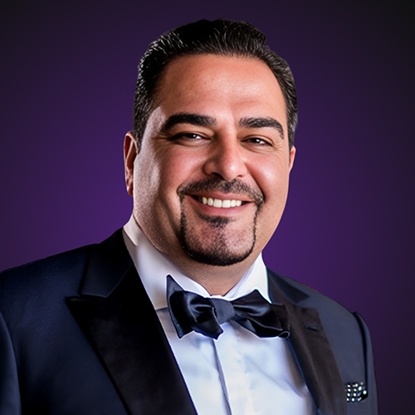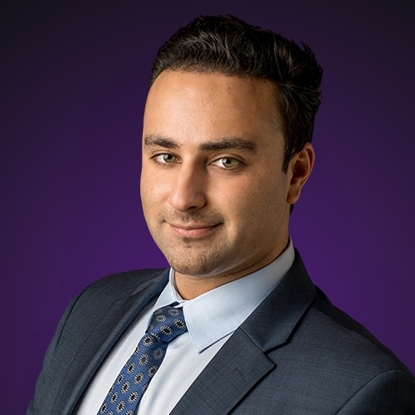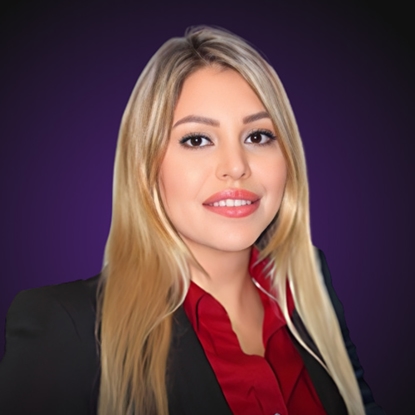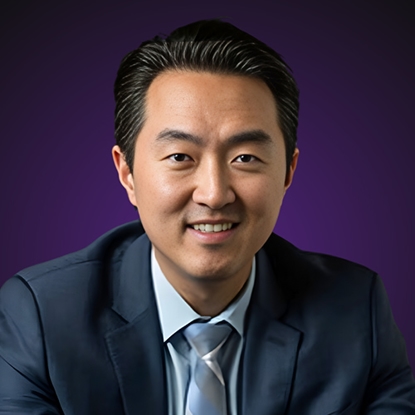California Workers’ Compensation Attorneys
Helping Injured Workers Across California
Were you injured on the job or while performing any job-related duty? Have you suffered an illness due to your employment duties? If you live anywhere in California, you can count on Alvandi Law Group for legal counsel and guidance throughout the entire workers’ compensation process. No matter what industry you work in or how you were injured, you can count on our experience, resources, and familiarity with California workers’ compensation law.
Injured workers throughout California choose Alvandi Law Group because of our:
- Case results: We have recovered more than $1,000,000,000 for our clients.
- Experience: We have helped injured California workers for more than 20 years.
- Reputation: We have earned a long list of testimonials from satisfied clients.
- Focus: Injuries—it’s all we do.
We serve injured workers throughout California and beyond, including in:
We don’t charge any fees unless we win your case. Call (800) 980-6905 or fill out an online contact form to learn more from our California workers' compensation lawyers.

On This Page:
- What is Workers’ Compensation in California?
- Who is Eligible for Workers' Compensation in California?
- Common Types of Work-Related Injuries
- Most Dangerous Industries in California
- Workers’ Compensation Benefits Available in California
- Report Your Work Injury Within 30 Days
- Frequently Asked Questions
Workers’ compensation is a no-fault insurance system that allows an injured worker to file for benefits after a work-related injury, regardless of who was at fault for the accident or incident. It is designed to help workers get back to work without suffering serious financial damage. By making it simpler for an injured worker to recover and start working again, workers’ compensation is also seen as a benefit for employers, not just employees.
Importantly, workers’ compensation claims are separate from long-term disability claims and personal injury claims. Long-term disability claims can be state- or federal-funded and provide benefits to people who can’t work due to health conditions that may or may not be related to their occupation. Personal injury claims are used to pursue economic and non-economic compensation by proving the defendant’s liability for the plaintiff’s losses. Also, if you are eligible to file for workers’ compensation after a work-related injury, you will usually be ineligible to file a personal injury claim against your employer for negligence.
California law states that any business with one or more employees, including part-time or seasonal employees, must purchase workers’ compensation coverage. Under this broad rule, millions of California workers are covered by workers’ compensation benefits provided by their employers.
Exclusions to workers’ compensation coverage exist, though, such as:
- Independent contractors
- Self-employed workers
- Most unpaid volunteers
- Most sole proprietors and partners
- Certain family members at family-owned businesses
- Domestic workers who work less than 52 hours in a 90-day period
- Certain agricultural workers
Not sure if you are covered by workers’ compensation after you suffered a work injury? Call (800) 980-6905today and talk to our California workers’ comp lawyers. We can assess your employment situation and let you know what you should do next if you are covered by workers’ compensation or should be according to the law.
-
"I would go as far as to say this is the best firm to choose in Orange County."Gil and his team is as good as it gets. This review is long overdue. The team went above and beyond to get me a favorable result. In the end, we came out ahead and we put the case behind us. I would go as far as to say this is the best firm to choose in Orange County. Thanks again.- Robert G.
-
"Highly recommend this law firm to anyone in need of legal experts."I recently sought legal assistance from Alvandi Law Group. Jessica Placensia, Attorney, was extremely knowledgeable, helpful and professional which put me at ease. Great teamwork taboos! Highly recommend this law firm to anyone in need of legal experts.- Venesa A.
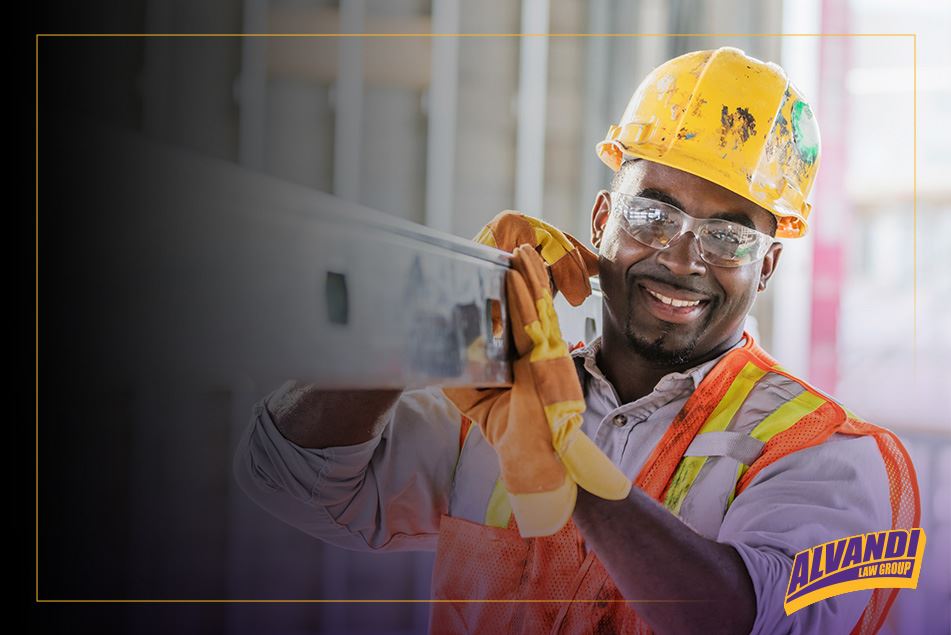
Frequently Asked Questions
-
How Much Money Am I Going to Get?No attorney can ever be completely certain how much money you will get for your workers’ comp claim. It is entirely based on the disability rating established through medical records and doctor reports. The more significant your injuries, the more the disability rating climbs, and the more monies you could possibly be rewarded. What you can be certain of is our ability to work as hard as possibly can to maximize your case and settlement value.
-
My Claim Has Been Denied or Otherwise Delayed - What Do I Do Now?A denied or delayed claim is not the end-all for workers’ compensation cases. You still may have a very real chance of receiving fair recovery, only now it will prove more difficult. If you have not retained the help of a workers’ comp attorney yet, now is the time to do so.
-
My Employer Fired Me or Otherwise Penalized My Because of My Injury. What Are My Options?California State law protects “whistleblowers” from reporting injuries they sustained while performing their duties as described. If your employer has retaliated against you for reporting an on-the-job accident, not only do you have a workers’ compensation case on your hands, you might also have an employment law case, too. Should this happen to you, contact our workers' compensation lawyers immediately.
-
What Is the Application/Packet I Received?The application - also called a complaint - kicks off your case. Within 90 days, you should also receive a denial or acceptance letter from your employer or their representatives. You have nothing else to do in regards to this application; the wheels are already in motion and the path is set for your case.
-
When Can I Speak to My Attorney?At Alvandi Law Group, our California workers’ comp attorneys always try to make ourselves available at all times for our client’s benefit. If you have any questions, we encourage you to call (800) 980-6905">(800) 980-6905 and we will get right back to you. Remember: you have the right to speak to us regarding anything surrounding your case, and your employer cannot interfere.
-
What Does Settling My Case Mean?Settling a case is when you agree with the resolutions proposed by the opposition. Most settlements will involve a large lump sum of money or a smaller sum plus any coverage for any necessary medical treatments. Be assure that we won’t settle any case without first getting you involved - this is your case, after all. Once we are able to get a settlement offer that suits your needs, we will thoroughly discuss your options so you can decide your next move with confidence.
-
How Long Will My Case Take?Cases can take months and months to resolve, or sometimes just weeks. In general, depending on the injury and the healing process, cases may take about 12 to 18 months to resolve. If your case goes to trial, however, things may take longer. This is why we work as hard as we can to maximize your case value and try to settle cases outside of court - success means you get the most you can in the shortest timeframe possible.
-
I Have Been Contact by an Adjuster. What Do I Do?Let us know as soon as you are contacted by an adjuster. In most cases, this is a ploy insurance companies use to try to get you to settle on your own and for a low, low value. If you provide us with the adjuster’s name and phone number, we will handle them for you. Do not call them back. Don’t worry - we will take care of this unwelcome solicitation on your behalf.
-
What Do I Do if My Claim Is Denied?
If your claim is denied, you must first be aware that it was not the decision of your boss or employer. Instead, it is the decision of a claims administrator working for or with an insurance company. Due to the disconnection between yourself and the people handling your claim, simply asking for a second review of your paperwork for potential errors will likely be fruitless.
To get to the source of the problem, you will likely need to file for an appeal, administrative review, and a mandatory settlement conference (MSC). During the MSC, you will meet with your claims administrator and attempt to reach an amicable settlement. It is highly recommended that you work closely with a professional attorney at this time so you do not accept lowballed amounts. If your MSC is unsuccessful and you were not given the chance to receive fair compensation, your case will go to an administrative review, which is considered a form of trial in California; again, the presence of a workers’ compensation lawyer will be incredibly useful.
During your administrative review or trial, you will be able to:
- Make arguments as to why you require workers’ compensation
- Present evidence for your case
- Refute claims presented by the claims administrator
The verdict or ruling for your trial will not be issued immediately. You will have to wait anywhere between 30 to 90 days for a written decision to be mailed to you. A petition for reconsideration can be filed if the decision is not in your favor, and a final, similar process begins.
-
Can Workers’ Compensation Be Denied?If there is a missing signature from just one bit of paperwork, or if the claims administrator is not convinced that your case justifies workers’ compensation benefits, your claim could be denied.
-
What Is TTD, TPD, PD & PPD?
After you suffer a workplace injury, you should be given an amount of workers’ compensation benefits to help you rest and recover without needing to worry about your job and your bills. Not all workers’ comp claims are the same, and so not all benefits packages or amounts are the same.
The severity of your injury, and how long it is expected to affect you, can change your compensation by categorizing your claim into one of four different classes:
- TTD: An injury that completely prevents a worker from completing their regular job functions but also is not severe enough to stop an eventual recovery creates a temporary total disability (TTD) case. At least 8 or more work days must be missed for an injury to be considered to cause TTD. For example: If your job was to patrol a property on foot as a security officer but you broke an ankle in a fall accident, you could not make your patrols while recovering but you would, in theory, be able to return to work eventually.
- TPD: A disabling injury that prevents only some work to be completed but should eventually heal given the right treatments creates a temporary partial disability (TPD) case. For example: If you were a retail worker who stocked shelves but suffered a back injury, you could be asked to put away light items within comfortable reach but not heavy items or those that require stooping.
- PD: When an injury is so severe that it is never expected to fully heal and completely removes a person from the workforce, it is known as a permanent disability (PD). The most dramatic of disabilities, a PD will often reward the most compensation to the injured party, as any sort of work could be considered dangerous. For example: If you were a firefighter who became paralyzed after a collapsing roof struck you, you should be granted PD.
- PPD: Some wounds never heal entirely but also do not completely remove a person’s ability to work. This is a partial permanent disability (PPD). For example: If you worked for a local delivery company but broke a leg, making any amount of walking painful, you could be reassigned and retrained for seated office work at the same company.
-
What Is an Agreed Medical Examination (AME)?
When you are injured on the job, there is a process that you must go through to file for benefits. One step of the process for a workers' compensation claim is to be examined by an approved physician. During this examination, the physician will make notes of both your injuries and state of disability, if there is one. This information goes into your medical record and is an essential part of securing benefits or a disability rating.
At Alvandi Law Group, our California workers' compensation attorneys can help you navigate the process and prepare for the AME.
-
What Does an Agreed Medical Examination (AME) Entail?
There is a special process involved in choosing the medical evaluator so that there is no bias. You will need to agree with the insurance claim administrator on a doctor, which a skilled attorney can help with. Otherwise, the Division of Workers' Compensation Medical Unit may be involved in this selection. The outcome of the AME (agreed medical examination) and your physician's notes will have a significant impact on your case.
The purpose of an AME includes the following:
- Establishing a medical opinion on any existing treatment needed
- Determining whether future medical treatment will be needed.
- Providing a professional medical opinion on any relevant issues
- Establishing whether there is a permanent impairment or disability
-
What Is a Deposition?A deposition for a workers' compensation case involves a sit-down meeting with your lawyer and/or a representative from their insurance company. At this time, they will ask you questions and a stenographer will take notes or a video recording will be made. At Alvandi Law Group, we recommend that you hire a CA workers' compensation lawyer to represent you at this deposition.
-
Do I Need to Hire an Attorney for a Deposition?Depositions are not typically required and can often feel informal, leading many clients to believe they are not necessary. However, going through a deposition with your representation present gives us a written record that can be used in your case. A deposition involves testifying under oath and can provide valuable information or address questions that may arise later on. Our workers' compensation attorneys in California are highly experienced and know exactly which questions to ask.
-
What Types of Questions Should I Expect During a Workers' Compensation Case Deposition?
At Alvandi Law Group, we know how to spot insurance companies' attempts and questions intended to deny claims, which we can use to your advantage. Hiring a workers' compensation lawyer can benefit your case greatly, especially if your workers' comp claim is complex or if you are concerned about whether or not you qualify.
A few examples of questions you might be asked include:
- Basic information, such as your name and background.
- How was your injury caused or what led to the accident?
- Have you undergone medical treatment and if so, what type?
- Did you have any previous injuries that were not work-related?
- What were your duties at jobs before your existing jobs?
- What type of physical hobbies do you have, such as sports?
- Does your injury prevent you from doing your current job?
- Does your injury stop you from doing any work at all?
-
What is Maximum Medical Improvement (MMI)?
The workers’ compensation benefits that you ultimately receive through your employer’s workers’ comp plan will be significantly affected by when you reach your maximum medical improvement or MMI. A patient has reached their MMI when the treating physicians believe that no amount or type of continued care will help them heal more from their injuries than they already have. Once MMI is reached, the patient’s care will shift from curative procedures to medical treatments designed to make life more comfortable, like routine physical therapy and prescription medications.
MMI is so important in a workers’ compensation case because it is a defining point in terms of what the injured employee will be able to do for work in the future. If you reach your MMI and you still experience sharp pain when standing for an extended period, for example, then you will need sedentary work with minimal physical exertion. Your employer and the insurance company need to be ready to accommodate and compensate you based on your post-MMI health.
Once you reach your MMI, the following determinations, and more, must be made:
- By your employer: You cannot be expected to continue a job position that would exacerbate your injuries or disabilities that appear to be permanent now that you have reached your MMI. Your employer will need to find a role for you that is safe for your health conditions but also pays the same or more than what you earned pre-injury. If they cannot, then your workers’ compensation benefits might be expanded to include vocational retraining that helps you start a new career or seek an advanced educational degree or certification.
- By the insurer: Upon reaching MMI, the insurer handling your case will have to determine if you qualify for extended wage replacement benefits, like permanent total or partial disability pay. Additionally, and importantly, the insurer will likely have the option to pay for fewer medical treatments once you reach MMI because treatments shift from curative to palliative. Secondary medical services are designed to help you maintain MMI, and the insurer will not be compelled to pay for experimental or optional treatments that could feasibly improve your health.
-
What if I’m Contacted by a Workers’ Comp Adjuster?
After suffering a work-related accident or illness and filing a claim under workers’ compensation, you may be contacted by an adjuster from your employer’s workers’ comp insurance provider.
Do you know what to say, or, more importantly, what not to say?
- Do not agree to anything: Speaking to a workers’ comp claims adjuster in any capacity is usually a bad idea since it can only serve to hurt your claim. While adjusters may present a friendly outward façade or claim that they are there to help, in reality, claims adjusters have one objective in mind: to save their insurer money. Any and all information you provide to an adjuster may potentially be used to limit or deny your claim.
- Do not discuss your medical condition: Avoid discussing your medical condition, as insurers may try to claim that your injuries are not caused by a work accident. If an insurer pushes you to discuss your health, have them discuss this with your attorney.
- Do not accept an offer without consulting an attorney: In many cases, it is not uncommon for workers’ comp insurers to have adjusters contact claimants in an attempt to get them to settle their case early and on their own, oftentimes for much lower than what they actually deserve. This can be dangerous. Settling early can cause a person to be held financially liable for any medical expenses or losses that exceed the limits of their settlement. For this reason, if you are contacted by a claims adjuster, it is highly recommended you do not agree to any settlements or authorizations of any kind and get in touch with an attorney as soon as possible. A lawyer can handle all negotiations and advocate for maximum compensation on your behalf, allowing you to focus on your recovery with peace of mind.
-
When Can I See a Doctor?
After suffering a work-related injury, your primary concern will likely be to seek medical treatment as soon as possible. But can you see your primary care physician, or do you have to wait and see a doctor designated by workers’ compensation? More importantly, when should you see a doctor?
Is your injury an emergency?
If your injuries require emergency medical treatment, call 911 or head to the nearest emergency room as soon as possible. Your employer must make sure you have access to emergency treatment immediately and may tell you where to go for treatment. Be sure to inform the medical staff that your injury or illness is job-related.
If your injuries are not an emergency, you should first report the injury to your supervisor or some other figure of authority immediately. For injuries that develop over time, such as tendinitis, be sure to report your injury as soon as you feel symptoms or have reason to believe that it was caused by your job. The sooner you report your injury, the more likely you will avoid problems and delays in receiving your benefits. If you wait more than 30 days, you could lose your right to benefits entirely.
Did you predesignate?
Aside from emergencies, injured workers will usually be required to wait to receive treatment until they are directed to a physician approved by their employer’s workers’ compensation insurance unless they previously informed their employer in writing the name and address of their primary physician or medical group prior to being injured. This is known as predesignating. Those who have predesignated may see their personal physician immediately after being injured.
It is important to note that you may only predesignate if you have health care coverage for medical conditions that are unrelated to work. To predesignate, you must prepare your own written statement, use DWC Form 9783, or use a form provided by your employer.
Be sure to include the following information:
- The date
- The name of your employer
- Your name
- Your physician’s name, address, and phone number
- Your signature
- A statement authorizing your personal physician to provide care
-
What Should I Discuss During My Initial Consultation?
The purpose of a consultation is to discuss the details of your claim with someone familiar with the workers’ compensation system before actually hiring someone, so you can feel confident in your choice. A consultation is also a good platform for asking any questions you have about your own claim or workers’ compensation in general.
Before you pick up the phone and call a workers’ compensation attorney, you should gather all of the information you have about your claim and think about why you are calling. Compile all of the:
- Medical records
- Job documents
- Witness contact information
- And other information related to your case
A consultation is not only an opportunity for you to meet a lawyer, but it is also an opportunity for the lawyer to meet you — providing comprehensive information will facilitate the process.
Following an on-the-job accident, many questions about your claim will arise naturally, but taking the time to sit down and think about your goals for pursuing legal action will help you arrive at other questions you need answered.
You may want to ask your workers’ compensation attorney questions such as:
- What benefits am I entitled to?
- What are my rights during the claims process?
- What evidence should I gather to help my case?
The attorney you are speaking to will need complete details about your claim to provide fully informed insight. You should be prepared to recount the events that occurred and discuss your injuries and expenses in depth.
-
What is the California Workers’ Comp Claims Process?
The California Workers’ Comp Claims Process is a multi-step process that begins with reporting your work injury to your employer within 30 days of the incident. You will receive a denial or acceptance letter from your employer or their representatives within 90 days. If your claim is denied, you may need to file for an appeal, administrative review, and a mandatory settlement conference (MSC). If the MSC is unsuccessful, your case will go to an administrative review, considered a form of trial in California. The verdict or ruling for your trial will not be issued immediately. You will have to wait anywhere between 30 to 90 days for a written decision to be mailed to you.
The California Workers' Compensation Claims Process generally follows these steps:
1. Report the Injury:
- Notify your employer: Immediately inform your supervisor or another designated person about the injury or illness.
- Employer's Responsibility: Your employer is required to provide you with a claim form (DWC-1) within one working day of learning about your injury.
2. File the Claim Form:
- Complete and Submit: Fill out the claim form accurately and return it to your employer.
- Employer's Role: Your employer will then forward the completed form to their workers' compensation insurance carrier.
3. Medical Treatment:
- Authorization: Your employer must authorize appropriate medical treatment within one day of filing the claim form.
- Choose a Doctor: You may have the right to choose your own doctor for treatment.
4. Insurance Company Review:
- Claim Acceptance/Denial: The insurance company will review your claim and decide whether to accept or deny it.
- 90-Day Period: If the employer doesn't deny your claim within 90 days, your injury is presumed to be covered.
5. Disability Benefits:
- Temporary Disability (TD): If you cannot work due to your injury, you may be eligible for temporary disability payments to replace a portion of your lost wages.
- Permanent Disability (PD): If your injury results in permanent limitations, you may be entitled to permanent disability benefits.
6. Potential Disputes:
- Disagreements: If you disagree with the insurance company's decision regarding your claim, you may need to file a dispute resolution request.
- Legal Representation: You may want to consult with a workers' compensation attorney to help navigate the process and protect your rights.
Based on information from the U.S. Bureau of Labor Statistics (BOL), the most common causes of fatal work accidents in California are:
- Transportation incidents (such as on-the-job car accidents)
- Exposure to harmful substances or environments
- Violence and other injuries by persons or animals (assault-related injuries)
- Falls, slips, and trips
As far as nonfatal work injuries go in California, repetitive stress injuries (RSIs) are among the most common. RSIs gradually occur when a worker repeats the same motion or task, again and again, such as lifting boxes onto shelves each day at work or typing on a keyboard for 40 hours each week, resulting in a painful injury or condition like chronic back pain or arthritis. Occupational diseases (illnesses contracted due to a job’s typical duties), musculoskeletal injuries, and sprains are also among the most common injuries suffered by California workers.
According to the U.S. Bureau of Labor Statistics (BOL), some of the most dangerous industries in California are:
- Private transportation and warehousing (including the general freight trucking industry)
- Private construction industry
- Logging and related industries
- Manufacturing and related machining industries
- Law enforcement
Workers in these dangerous industries should be covered by workers’ compensation and may need to file a claim more often than workers in other industries. However, many such workers might be surprised that they aren’t covered by workers’ compensation insurance because they are technically considered independent contractors or are excluded for another reason.
Workers’ compensation benefits are meant to alleviate the financial burden an injured worker bears after a work-related injury. Depending on your injury, occupation, and coverage, you could be eligible to receive several types of benefits. Our California workers' compensation attorneys are ready to help you fight for them all and every cent owed to you.
Important workers’ compensation benefits in California include:
- Medical costs: 100% of the costs for medical treatments deemed necessary in relation to your work-related injury should be covered by workers' compensation.
- Temporary disability: If you are away from work for several days or more than a week, you could be eligible for partial wage replacement benefits, also called temporary disability benefits. Generally, partial wage replacement benefits will equal two-thirds of the injured worker’s average weekly salary, up to a cap.
- Permanent disability benefits: If you cannot return to work for the foreseeable future, you could be eligible for permanent disability benefits. You could be eventually required to file for long-term disability benefits through a state-funded program, not workers’ compensation, depending on the duration and severity of your disability.
- Supplemental job displacement benefits: You could be eligible to receive training to get new skills and certifications to find gainful employment in another job or industry. Overall, the cost of retraining or new schooling will be capped at $6,000 in benefits.
- Death benefits: If you lose a loved one in a job-related accident or to an occupational illness, you could be eligible for death benefits. Usually, death benefits pay for the cost of final medical treatments and reasonably priced burial and funeral services. A portion of the deceased worker’s wages may also be provided to the family.
An injured worker in California is usually expected to notify their employer within 30 days of suffering the work-related injury or being diagnosed with a work-related health condition. If no notification is provided within those 30 days, it could give the employer and/or the employer’s insurance provider grounds to challenge any workers’ compensation claim filed later.
You should try to notify your employer as soon as you can after you suffer a work-related injury or illness. You can also ask your employer for a workers’ compensation claim form and return it filled out, which will count as “written notice” of your injury to your employer.

The Attorneys of Alvandi Law Group
Get To Know Us


